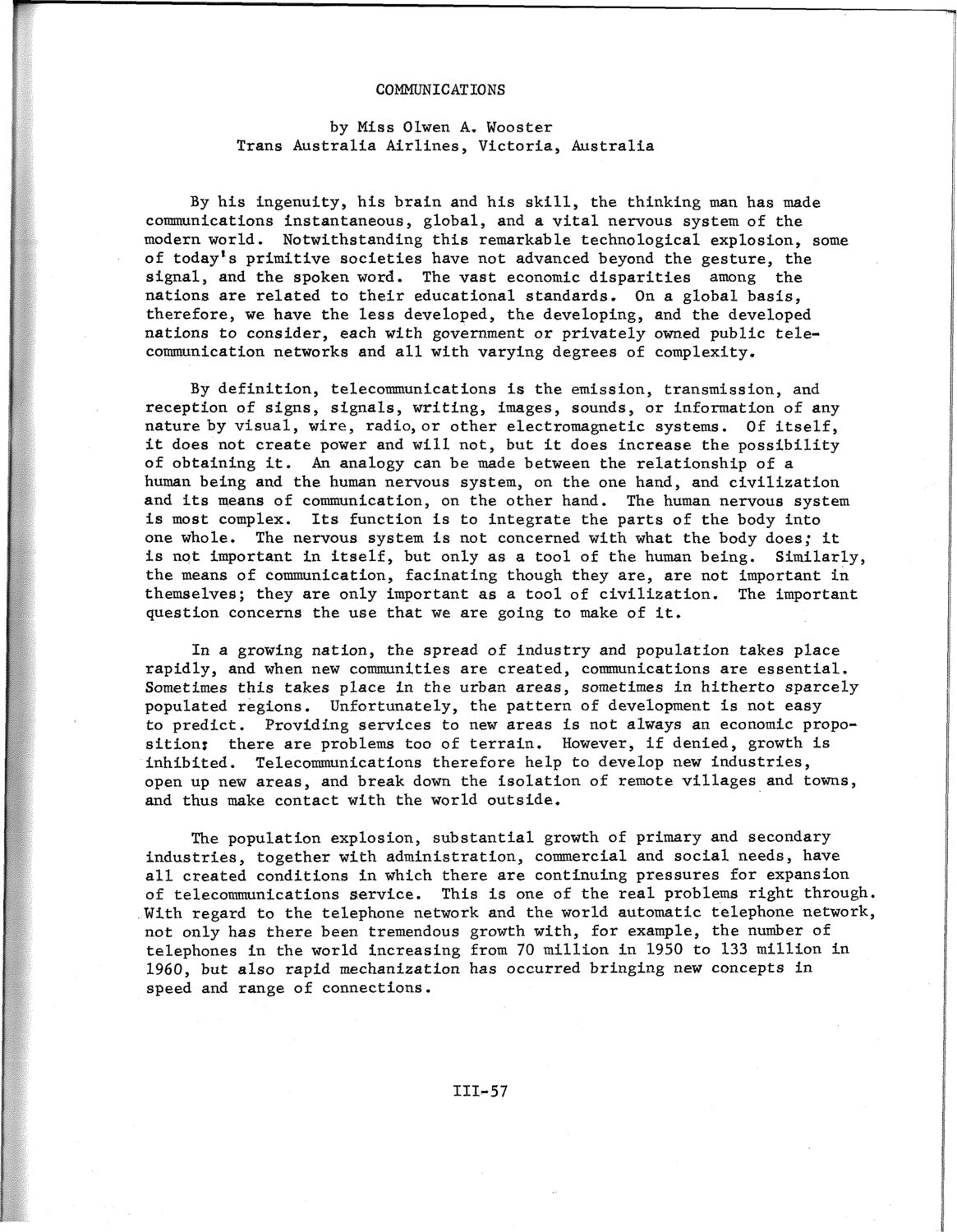| |
| |
Caption: SWE - Proceedings of the First International Conference of Women Engineers and Scientists
This is a reduced-resolution page image for fast online browsing.

EXTRACTED TEXT FROM PAGE:
COMMUNICATIONS by Miss Olwen A. Wooster Trans Australia Airlines, Victoria, Australia By his ingenuity, his brain and his skill, the thinking man has made communications instantaneous, global, and a vital nervous system of the modern world. Notwithstanding this remarkable technological explosion, some of today's primitive societies have not advanced beyond the gesture, the signal, and the spoken word. The vast economic disparities among the nations are related to their educational standards. On a global basis, therefore, we have the less developed, the developing, and the developed nations to consider, each with government or privately owned public telecommunication networks and all with varying degrees of complexity. By definition, telecommunications is the emission, transmission, and reception of signs, signals, writing, images, sounds, or information of any nature by visual, wire, radio, or other electromagnetic systems. Of itself, it does not create power and will not, but it does increase the possibility of obtaining it. An analogy can be made between the relationship of a human being and the human nervous system, on the one hand, and civilization and its means of communication, on the other hand. The human nervous system is most complex. Its function is to integrate the parts of the body into one whole. The nervous system is not concerned with what the body does; it is not important in itself, but only as a tool of the human being. Similarly, the means of communication, facinating though they are, are not important in themselves; they are only important as a tool of civilization. The important question concerns the use that we are going to make of it. In a growing nation, the spread of industry and population takes place rapidly, and when new communities are created, communications are essential. Sometimes this takes place in the urban areas, sometimes in hitherto sparcely populated regions. Unfortunately, the pattern of development is not easy to predict. Providing services to new areas is not always an economic proposition: there are problems too of terrain. However, if denied, growth is inhibited. Telecommunications therefore help to develop new industries, open up new areas, and break down the isolation of remote villages and towns, and thus make contact with the world outside. The population explosion, substantial growth of primary and secondary industries, together with administration, commercial and social needs, have all created conditions in which there are continuing pressures for expansion of telecommunications service. This is one of the real problems right through. With regard to the telephone network and the world automatic telephone network, not only has there been tremendous growth with, for example, the number of telephones in the world increasing from 70 million in 1950 to 133 million in 1960, but also rapid mechanization has occurred bringing new concepts in speed and range of connections. 111-57
| |